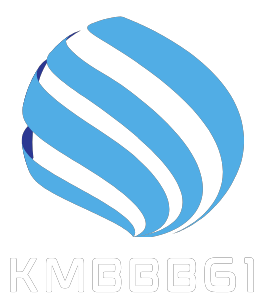In today’s global marketplace, the demand for Halal-certified products is on the rise. But what exactly does Halal mean? Halal, in Arabic, translates to “permissible” or “lawful” and refers to food and beverages that are prepared according to Islamic dietary laws. halal food certification ensures that products meet these strict criteria, providing assurance to Muslim consumers that the food they consume complies with their religious beliefs.
2. The Process of Halal Certification
Obtaining Halal certification involves a rigorous process to ensure compliance with Islamic principles. First and foremost, the ingredients used in the production of food items must be Halal-certified, meaning they are free from any prohibited substances such as pork, alcohol, or non-Halal animal derivatives. Additionally, the manufacturing process itself must adhere to Halal standards, including proper handling, storage, and processing of food products.
3. Benefits of Halal Food Certification
Halal certification offers numerous benefits for businesses operating in the food industry. Firstly, it provides assurance to Muslim consumers that the products they purchase are Halal-compliant, thereby building trust and loyalty among this demographic. Moreover, obtaining Halal certification opens doors to new markets, both domestically and internationally, as the Halal food market continues to expand globally.
4. The Role of Certification Bodies
Certification bodies play a crucial role in the Halal certification process, as they are responsible for evaluating and verifying compliance with Halal standards. These bodies typically consist of Islamic scholars and food industry experts who assess the Halal status of products and production facilities. When selecting a certification body, businesses should look for accreditation from recognized authorities and adherence to established Halal guidelines.
5. Challenges in Halal Food Certification
Despite the benefits, obtaining Halal certification can present challenges for businesses. One major obstacle is the lack of standardized guidelines across different countries and regions, leading to inconsistencies in certification requirements. Additionally, the cost and resource implications associated with certification can be prohibitive for smaller businesses, especially those operating on tight budgets.
6. Global Halal Certification Trends
In recent years, there has been a significant growth in the Halal food market, driven by an increasing Muslim population and growing consumer awareness of Halal principles. As a result, there has been a corresponding rise in demand for Halal certification services. Emerging trends in Halal certification include the use of technology, such as blockchain, to enhance traceability and transparency in the certification process.
7. Halal Certification in Different Sectors
Halal certification is not limited to the food and beverage industry but extends to other sectors such as cosmetics, personal care products, and pharmaceuticals. For example, Halal-certified cosmetics are free from animal-derived ingredients and alcohol, making them suitable for Muslim consumers. Similarly, pharmaceutical companies may seek Halal certification for their products to cater to Muslim patients’ dietary and religious requirements.
8. Consumer Awareness and Education
Despite the growing popularity of Halal-certified products, there remains a need for consumer education and awareness. Many consumers, both Muslim and non-Muslim, may not fully understand the significance of Halal certification or the requirements involved. It is essential for businesses to invest in educational initiatives to dispel myths and misconceptions surrounding Halal principles and certification processes.
9. Regulatory Framework for Halal Certification
The regulatory landscape for Halal certification varies from country to country, with some jurisdictions having established Halal certification bodies and guidelines, while others rely on industry self-regulation. Efforts are underway to harmonize Halal standards globally, facilitating trade and ensuring consistency in certification requirements across borders.
10. Technological Innovations in Halal Certification
Advancements in technology are revolutionizing the Halal certification process, making it more efficient and transparent. Blockchain technology, for example, enables the creation of immutable records of Halal certification, enhancing traceability and reducing the risk of fraud. Digital platforms and mobile applications also streamline the certification process, allowing businesses to track their certification status in real-time.
11. Halal Certification and Sustainable Practices
There is a growing awareness of the intersection between Halal certification and sustainable food production practices. Many consumers, including Muslims, are increasingly concerned about the environmental and ethical implications of their food choices. As such, Halal certification bodies are placing greater emphasis on sustainability criteria, such as animal welfare and environmental impact, when evaluating products for certification.
12. Case Studies of Successful Halal Certification
Numerous companies have benefited from obtaining Halal certification, gaining access to new markets and increasing consumer trust in their products. For example, multinational food corporations have successfully tapped into the Halal food market by certifying their products, thereby expanding their customer base and driving revenue growth.
13. Future Outlook of Halal Certification
Looking ahead, the future of Halal certification appears promising, with continued growth expected in the Halal food market. Technological innovations will play a crucial role in streamlining the certification process and enhancing transparency and trust among consumers. However, challenges such as standardization and regulatory compliance will need to be addressed to ensure the continued success of Halal certification initiatives.
14. Conclusion
In conclusion, Halal food certification plays a vital role in ensuring compliance with Islamic dietary laws and providing assurance to Muslim consumers worldwide. Despite the challenges, the benefits of Halal certification for businesses are significant, including increased marketability, consumer
